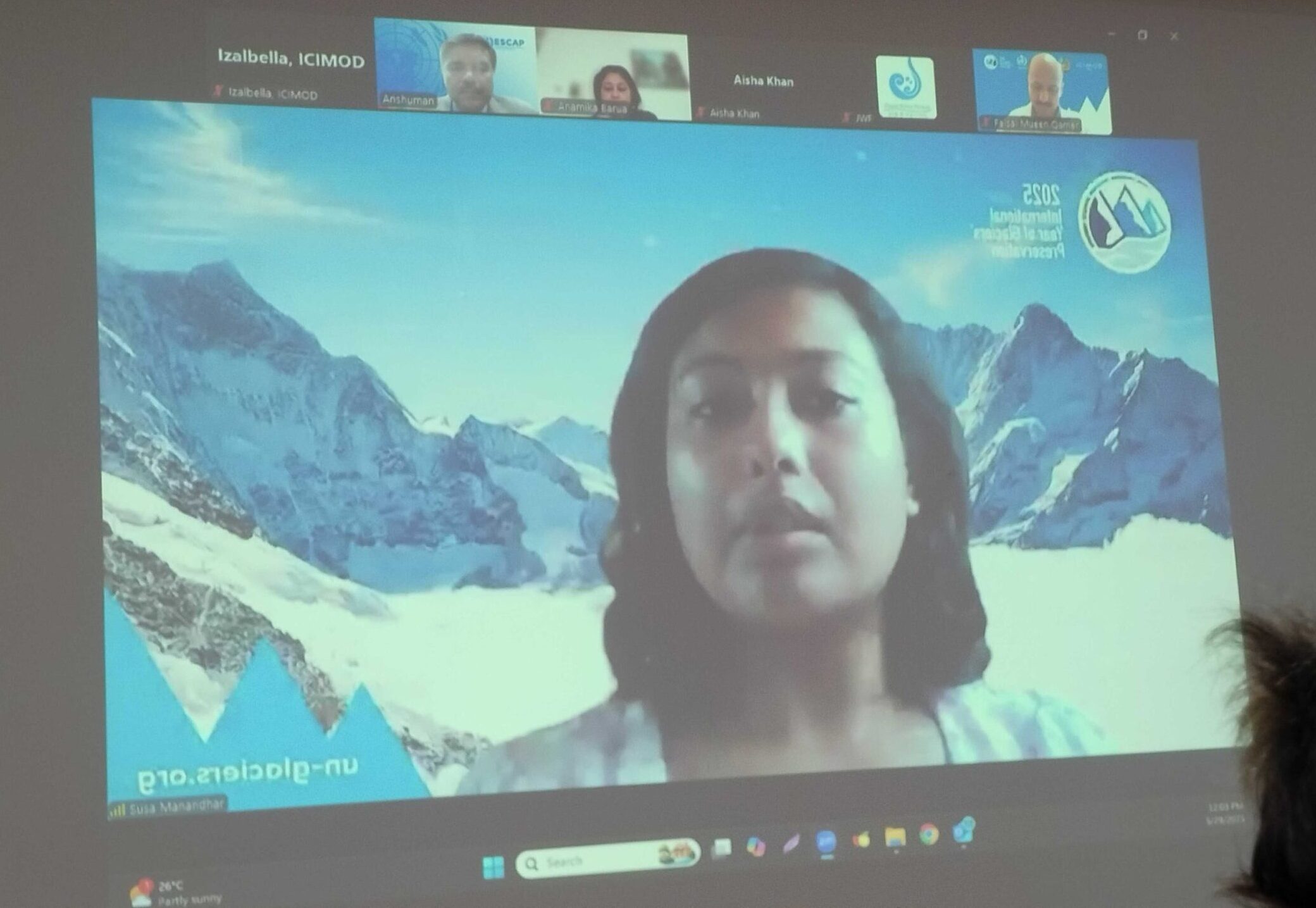On May 4th, 2023, The final workshop of “Plot to Save the Planet” was concluded, organized by The Small Earth Nepal (SEN), UNESCO Nepal, Central Department of Hydrology and Meteorology (CDHM), TU, Consortium of Capacity Building (CCB), and Fulbright Program. It was the continuation of the program initiated on April 26th at UN House Pulchowk and it focused on Creeping Environmental Problems (CEPs).
Dr. Michael H. Glantz, CCB Director, inspiring presentation focused on career flexibility and fulfillment. He highlighted the importance of embracing change, setting ambitious goals, and finding meaning in one’s professional journey. Attendees were motivated to overcome challenges and create fulfilling careers in an imperfect world.
Ms. Sijal Pokharel, a Natural Science Officer at UNESCO, reflected on the previous CEPs workshop and facilitated a question and answer session. She emphasized the importance of being able to communicate and encouraging individuals to share their experiences and feelings on “Being able to be vulnerable is being brave.” This approach fosters learning and a supportive environment among participants.
Dr. Dhiraj Pradhananga, Assoc. Professor, TU; President of SEN, presented on CEPs. He discussed the comparison between the global aspect taught by Gandhi of needing a second earth and the current situation of needing a third earth in respect of consuming natural resources. He also highlighted the human impact on nature, ecological footprint, and the urgency to address the issues in terms of consuming the products and services of nature. Dr. Pradhananga initiated a group discussion and action plan for societal service and teamwork.
Robert Jay Ross, Project Manager at CCB, emphasized the importance of intergenerational dialogue. He highlighted effective communication as a crucial tool for conveying messages and information. Ross stressed the significance of what is heard rather than what is said, discussing the dangers of miscommunication. He addressed barriers to communication and initiated a breakout session to identify and understand key communication barriers in society. The aim was to foster better understanding and facilitate effective communication between different generations.
The event was closed with a formal honoring ceremony conducted by Prof. Deepak Aryal, Head of Department at CDHM, and Dr. Pradhananga to recognize the contributions of Dr. Michael H. Glantz and Robert Jay Ross. The ceremony was followed by the distribution of certificates to the participants. The event’s success positively impacts environmental awareness and promotes sustainable behavior and intergenerational communication.





